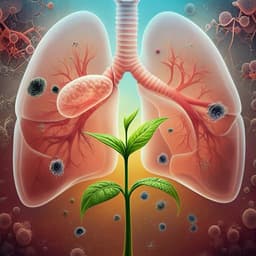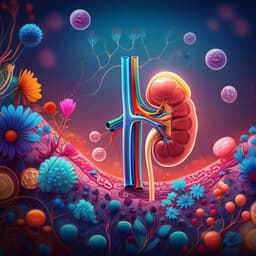
Medicine and Health
Effect of gut microbiota on depressive-like behaviors in mice is mediated by the endocannabinoid system
G. Chevalier, E. Siopi, et al.
This groundbreaking research explores how gut microbiota influences depressive-like behaviors in mice under unpredictable chronic stress. The findings reveal that these behaviors can be transferred via fecal microbiota transplantation, linking chronic stress, gut health, and the endocannabinoid system. This alarming connection was uncovered by a talented team of researchers including Grégoire Chevalier, Eleni Siopi, and others at the prestigious Institut Pasteur.
Related Publications
Explore these studies to deepen your understanding of the subject.







